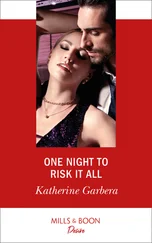The guard’s mother told Igor that her son was all right but a little bit of a sissy. She told him that his guarding of Igor was the best thing he had done so far. She told him how his brothers all lived in big cities where they fought for important things — the holiest of churches, the most beautiful of paintings, the most important politicians — but not this one. This one guarded a jail with no one in it. “You can’t leave us,” the mother said. “You’re the only thing that makes my son here not look like a total idiot.”
When they had eaten the last of their desserts, the guard’s mother told them to go sleep in her bed. “I’ll do the dishes,” she said. “You have a nap.”
Igor nodded enthusiastically at this idea, but the guard said, “No, thanks, Mother, we have to get him back to jail.”
“I really am tired,” Igor said when they got outside.
The guard looked puzzled. “What else would we do with our afternoon? This country is nothing without its nap. We’ll sleep in the jail. That woman makes me crazy.”
“I had a mother.” Igor remembered, quite suddenly. “A lot of us had the same one. We were eleven, plus one who died when he was a baby. She cooked nothing but beef. She loved beef.” He remembered being utterly devoted to her, following her around without acknowledgment. After he was married, he could not recall his mother ever having come to visit him and his family, not one single time. She had avoided him in the market and averted her eyes in temple. As if he were disgusting to her, as if she could see through his skin and bones to the hairy, blistered soul within.
“Did she make you feel like swimming out to sea and never coming back?” the guard asked.
The two men walked the path through the dusky green olive grove. The ground was raised raucous with rocks and branches. A lot of chickens wandered around, aimless and pecking. Goats clanged their bells without meaning to, tearing the grass from its roots. There were no sounds of voices. No bubble of laughing washerwomen, no scramble of children, no gruff of men smoking in the plaza. Just chickens and goats and the rustle of horses’ manes in the wind.
“Everyone is asleep?” Igor asked.
“Certainly,” the guard replied.
“This place is incredible. If only my family was here with me.”
The guard opened the jail door to let Igor in first. “Home sweet home,” he said. The guard opened the gate into the barred cage and Igor flopped onto the bed. “May I join you?” the guard asked.
“Please, guard, make yourself at home.”
“Maybe you should stop calling me guard and start calling me Francesco,” the guard said. “Since you’re staying around awhile.” Francesco went to one side of the bed and Igor to the other.
As he was falling asleep, Francesco asked Igor, not unlike a marriage proposal, to be his friend. Igor was not sure how to answer. Francesco gave him a pat on the back and, lying as hard as he had ever lied, he said, “I didn’t realize how lonely I’d been.”
As he drifted off, Igor saw my face and the faces of our boys. The angle of our noses, the smell of our hair, the way we moved. The deeper that Igor fell, my face, Solomon’s and the new baby’s faces, turned to mist. We hovered still, cloudlike, around him, but we had no hands he could hold, no ears he could speak to. I almost remember you , he thought, but then he did not again. He caught his family in whiffs, as faint and drifting as the scent of a flower. Home had been taken away as easily as it had been invented. A new place lapped at Igor’s feet.
THE BOOK OF THE DISTANCE AHEAD
In the pink of dawn, the border was clogged with blackberry thorns and brush. I wrapped my shawl around the baby and tied him to my chest. As if diving into water, I held my breath. We had to tear the branches apart, untangle their talons, duck and overstep, and still we emerged with bleeding arms. I had thorns stuck in my dress. The baby had a scratch across his little cheek and he grimaced at me when I peeked into his cocoon. We walked out of the village, just like that, out of the world. We did not fall off a cliff, nor were we swept into the sky by a tremendous gust of wind. The earth went on as if we had not crossed any border.
The old road was shabby and overgrown but obvious. We were going one foot, then the other into the past. Or was it the future? Had the lands outside our borders zipped ahead of us or slipped behind? What assembled itself along our path offered little evidence either way. Short, soft-needled pines, weeds, a bloomless crocus. Endless rolls of wheat, planted by knobbled human hands. A thousand worlds’ worth of sky, and the singular sun coming to give us our turn at daytime. Light poured over fields and the way ahead of us was open and long.
The compass pointed us toward the mountains. I had no idea which direction was safest and which was most dangerous, but it felt better to follow something than not to. All I could do was go on. We came into a dense birch forest, thousands of white fingers of trees reaching out of the ground. A stream ran through the trees, and the rocks were mossy. Sticks stuck on the rocks, then came loose and twirled as they floated away. Solomon climbed into one of the birches, stood like a new branch.
“Are we looking for Father?” Solomon asked.
“We’re staying safe,” I told him. “It’s better to be alone and quiet. We can be quiet, right?” We lay down under a huge tree whose branches cut the sky up. Fallen leaves under us crushed themselves soft. The tree smelled full and sweet and dropped only a few jeweled raindrops down to us, one at a time.
We listened to the sound of water hitting leaves. We could see only the gray of mist around us. We were wrapped in it, clothed. I took in the rich smells of leaves decomposing, of wet bark and turned dirt. The baby was warm on my chest. What does it feel like, I asked myself, to be away? Even though my back was against the earth, I felt as if I were floating above.
“Come to me,” I said to Solomon, who was drawing the shape of a house in the loam with his finger. “Let me have you.” Solomon put his face to my chest. He listened to what transpired inside, the gathering and sending out of blood. He listened to his brother taking liquid into his mouth.
“Can I taste it?” Solomon asked.
“What?”
“The milk.”
The baby’s suckling sounds matched the rolling of water over waxy leaves.
“You can if you want to. Do you?”
“Please.” I pulled away the shawl I was wearing, pulled myself out from inside of it.
“What do I do?” he asked me.
“Just suck a little, it will come.” Solomon’s mouth was warm, now both breasts held in the soft of my children’s lips. I felt the milk leave me. I knew that I was allowing one brother to steal food from the other, but I wanted to be enough for both of them. I felt Solomon stop for a moment, then start again. He laughed and drank. He was gentler than the baby was, more persuasive. I put my head back against the tree. I tried to feel its roots under me, the net of them holding everything up. I watched the leaves shake in the wind and the rain, the rain, which was slowing, which was quieting, which was loosening its hold on us. Solomon fell asleep and so did his brother. I held them to me, felt them against my skin. The breath turned wet and cold. They were heavy but I did not put them down.
At this moment, what was real mated with what was dreamed. I want to be able to say exactly where we walked and how we survived out there, for how long. We went north, unless we came to a wide river, or it looked like a town might be ahead, in which case we went east. In my palm, the compass was warm. Facts about how much food the body needs and my memory of what we found to eat do not match up. And time? As if time had ever made sense to me? What followed was one long night.
Читать дальше












